Vision
To develop a knowledge hub for Computer Science Engineers and Technocrats in application of their competence for the betterment of the Individual, Industry and Society.
Mission
- To nurture the students to be industry ready by providing a strong conceptual foundation and by enhancing their employability and entrepreneurial skills.
- To provide holistic growth by conducting relevant enrichment programs, which includes curricular, co-curricular, extra-curricular and extension activities.
- To inculcate innovation and creativity through practically viable Internships and Project works.
- To create a research oriented mindset and focus in fulfilling growing demands of the society through mentoring and lifelong learning.
Program Educational Objectives(PEO)
PEO 1: Graduates will have the ability to adapt, contribute and innovate new technologies and systems in the key domains of Artificial Intelligence.
PEO 2: Graduates will be able to successfully pursue higher education in reputed institutions with AI Specialization.
PEO 3: Graduates will have the ability to explore research areas and produce outstanding contribution in various areas of Artificial Intelligence.
PEO 4: Graduates will be ethically and socially responsible solution providers and entrepreneurs in the field of Computer Science and Engineering with AI Specialization.
PEO 5: To work in a Multidisciplinary environment by providing solutions to real time problems.
Programme Specific Outcomes (PSO) & Program Outcome (PO)
PROGRAMME SPECIFIC OUTCOMES (PSO)
PSO1: Apply the skills in the areas of Health Care, Education , Agriculture, Intelligent Transport, Environment, Smart Systems & in the multi-disciplinary area of Artificial Intelligence
PSO2: Demonstrate engineering practice learned through industry internship to solve live problems in various domains. Software applications for problem solving.
PROGRAM OUTCOME (PO)
PO1: Engineering knowledge: Apply the knowledge of mathematics, science, engineering fundamentals, and an engineering specialization to the solution of complex engineering problems.
PO2: Problem analysis: Identify, formulate, research literature, and analyze complex engineering problems reaching substantiated conclusions using first principles of mathematics, natural sciences, and engineering sciences.
PO3: Design/development of solutions: Design solutions for complex engineering problems and design system components or processes that meet the specified needs with appropriate consideration for the public health and safety, and the cultural, societal, and environmental considerations.
PO4: Conduct investigations of complex problems: Use research-based knowledge and research methods including design of experiments, analysis and interpretation of data, and synthesis of the information to provide valid conclusions.
PO5: Modern tool usage: Create, select, and apply appropriate techniques, resources, and modern engineering and IT tools including prediction and modeling to complex engineering activities with an understanding of the limitations.
PO6: The engineer and society: Apply reasoning informed by the contextual knowledge to assess societal, health, safety, legal and cultural issues and the consequent responsibilities relevant to the professional engineering practice.
PO7: Environment and sustainability: Understand the impact of the professional engineering solutions in societal and environmental contexts, and demonstrate the knowledge of, and need for sustainable development.
PO8: Ethics: Apply ethical principles and commit to professional ethics and responsibilities and norms of the engineering practice.
PO9: Individual and team work: Function effectively as an individual, and as a member or leader in diverse teams, and in multidisciplinary settings.
PO10: Communication: Communicate effectively on complex engineering activities with the engineering community and with society at large, such as, being able to comprehend and write effective reports and design documentation, make effective presentations, and give and receive clearinstructions.
PO11: Project management and finance: Demonstrate knowledge and understanding of the engineering and management principles and apply these to one’s own work, as a member and leader in a team, to manage projects and in multidisciplinary environments.
PO12: Life-long learning: Recognize the need for, and have the preparation and ability to engage in independent and life-long learning in the broadest context of technological change.
Curriculum & Syllabus
CURRICULUM & SYLLABUS
| Category | Course Title | Lecture | Tutorial | Practical | Credits | CA | SEE | Total |
|---|---|---|---|---|---|---|---|---|
| SEMESTER 1 | ||||||||
| BSC | Engineering Chemistry | 3 | - | - | 3 | 40 | 60 | 100 |
| BSC | Mathematics I(Calculus and Linear Algebra) | 3 | 1 | - | 4 | 40 | 60 | 100 |
| ESC | Programming for Problem Solving | 3 | - | - | 3 | 40 | 60 | 100 |
| ESC | Basics of Civil and Mechanical Engineering | 3 | - | - | 3 | 40 | 60 | 100 |
| ESC | Workshop and Manufacturing Practices | 1 | - | 4 | 3 | 40 | 60 | 100 |
| BSC | Chemistry Laboratory | - | - | 2 | 1 | 40 | 60 | 100 |
| ESC | Programming for Problem Solving Laboratory | - | - | 2 | 1 | 40 | 60 | 100 |
| MC | Student Induction Program | - | - | - | - | - | - | - |
| MC | Universal Human Values | 2 | - | - | - | 100 | ||
| 15 | 1 | 8 | 18 | |||||
Eligibility Criteria
| Program | Program Duration (Year) | Eligibility | Criteria for Merit |
|---|---|---|---|
| B.Tech Computer Science and Engineering (Artificial Intelligence) | 4 Years (8 Semesters) | "First Year: Passed 10+2 examination with Physics/ Mathematics/ Chemistry/ Computer Science/ Electronics/ Information Technology/ Biology/ Informatics Practices/ Biotechnology/ Technical Vocational subject/ Agriculture/ Engineering Graphics/ Business Studies/ Entrepreneurship as per table 8.4 Agriculture stream (for Agriculture Engineering) Obtained at least 45% marks (40% marks in case of candidates belonging to reserved category) in the above subjects taken together. OR Passed D.Voc. Stream in the same or allied sector. (The Universities will offer suitable bridge courses such as Mathematics, Physics, Engineering drawing, etc., for the students coming from diverse backgrounds to prepare Level playing field and desired learning outcomes of the programme) Lateral Entry (to Second Year) Passed Minimum THREE years / TWO years (Lateral Entry) Diploma examination with at least 45% marks (40% marks in case of candidates belonging to reserved category) in ANY branch of Engineering and Technology. OR Passed B.Sc. Degree from a recognized University as defined by UGC, with at least 45% marks (40% marks in case of candidates belonging to reserved category) and passed 10+2 examination with Mathematics as a subject. OR Passed B.Voc/3-year D.Voc. Stream in the same or allied sector. (The Universities will offer suitable bridge courses such as Mathematics, Physics, Engineering drawing, etc., for the students coming from diverse backgrounds to achieve desired learning outcomes of the programme)" | "Merit based on Vels Entrance Examination and percentage of mark secured in the qualifying examination" |
Career Prospects
Alumni Testimonials
Fee Structure
| Tuition Fee 2024 - 2025 (Per Sem) | Other Fee (Per Sem) | Total Fee 2024 - 2025 (Per Sem) |
|---|---|---|
| 58,000 | 41,000 | 99,000 |
Faculty of the Department
| S.No | NAME OF THE FACULTY | DESIGNATION | EDUCATIONAL QUALIFICATION | AREA OF SPECIALIZATION | EXPERIENCE IN YEARS | Vidwan ID | PHOTO |
|---|---|---|---|---|---|---|---|
| 1 | Dr.S.Arun | Professor & Director (IQAC) | M.E., Ph.D | Artificial intelligence, Human computer interaction, Vision System, Biosignal Processing | 18 | 258568 | 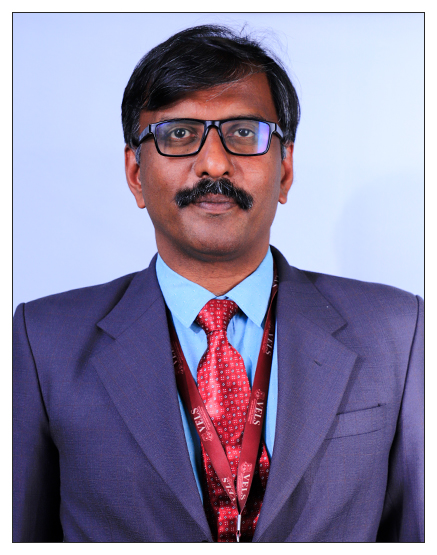 |
| 2 | Dr.K.Kalaivani | Associate Professor & Head | M.E., Ph.D | Image Processing, Data Analytics, Artificial Intelligence | 17 | 233987 | 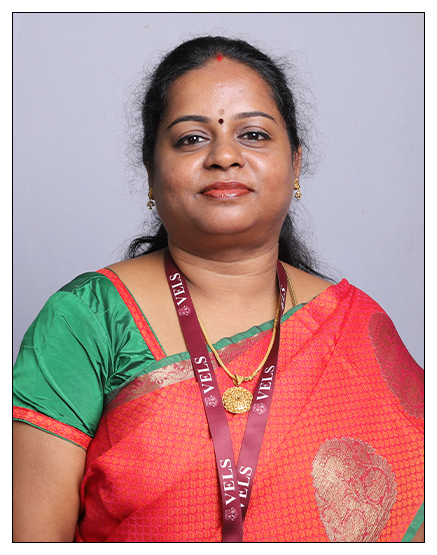 |
| 3 | Dr. R.Anandan | Professor | M.E., Ph.D | Quantum Computing, Regenerative AI, AR- VR, Metaverse , Human Computer Interaction, Edge Computing, Computer Vision, Natural Language Processing, High Performance Computing | 23 | 84899 |  |
| 4 | Dr. N. Kumar | Professor | M.Tech., Ph.D | Computer Networks, Mobile and Wireless Ad hoc Networks, Software Defined Networks, Cloud Computing, IoT, Image Processing, AI & Machine Learning, Data Science | 18 | 232473 | 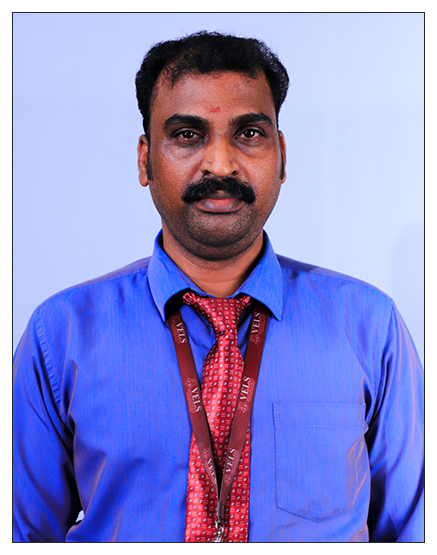 |
| 5 | Dr.A.Rajesh | Professor | M.Tech., Ph.D | Network Security | 16.8 | 232499 |  |
| 6 | Dr.A.Packialatha | Associate Professor | M.E., Ph.D | Pattern Recognition,Cloud Computing,Knowledge Engineering,Neural Networks, Big Data Analytics,Deep learning | 21 | 253610 | 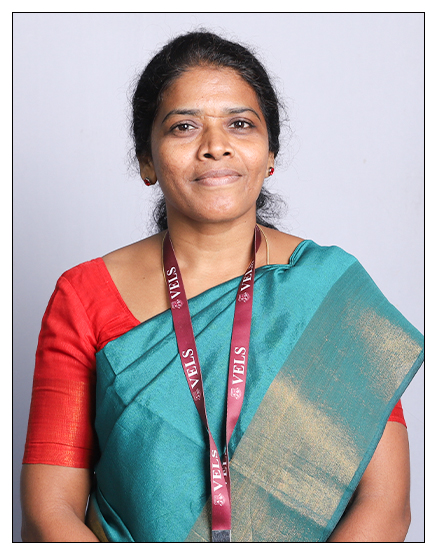 |
| 7 | Dr.S.Meera | Associate Professor | M.E., Ph.D | Big data, image processing, computer networks, cloud computing, IoT | 23 | 315114 | 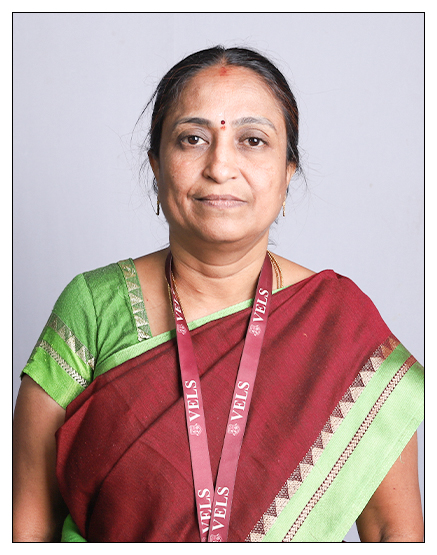 |
| 8 | Dr.K.UlagaPriya | Associate Professor | M.E., Ph.D | Machine learning, data science, software Engineering | 22 | 232452 | 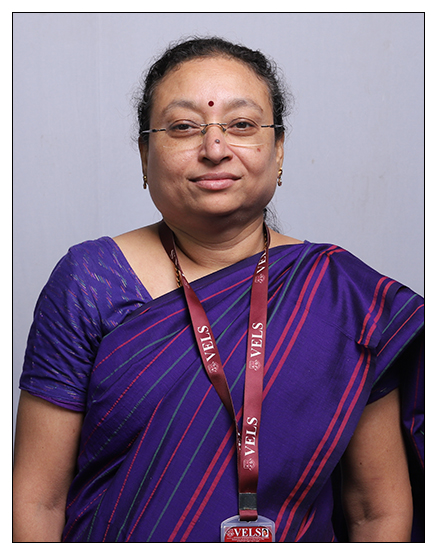 |
| 9 | Dr.S.Sridevi | Associate Professor | M.E., Ph.D | Computer Networks,Wireless Sensor Networks, Artificial Intelligence,Machine Learning, Deep Learning, Data Science, Computer Vision,Network Security,Cyber Security,IoT | 15.8 | 234016 | 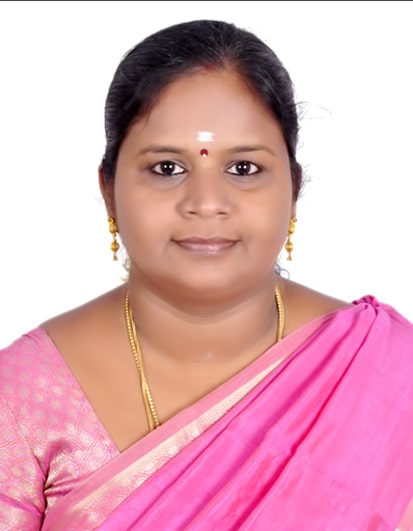 |
| 10 | Dr.A.Manikandan | Assistant Professor | M.E., Ph.D | Computer Networks, Cloud Computing, IoT, Image Processing, AI & Machine Learning, Data Science | 10.5 | 234022 | 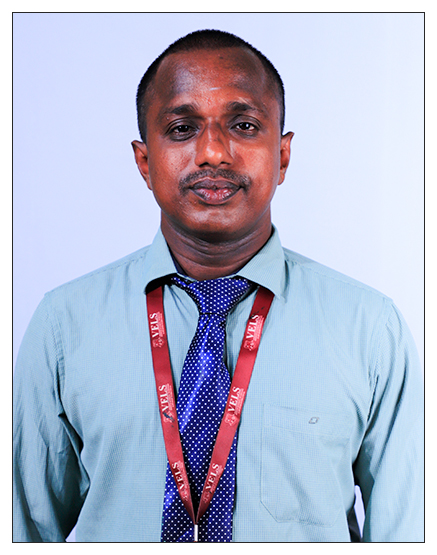 |
| 11 | Dr.C.Swaraj Paul | Assistant Professor | M.E., Ph.D | Data Mining, Image Processing, IoT, Cloud Computing, sensors | 10 | 485613 |  |
| 12 | Dr.P.SheelaGowr | Assistant Professor | M.E., Ph.D | Image Processing, Cloud Computing, IoT, AI & Machine Learning, Data Science | 13.9 | 234045 | 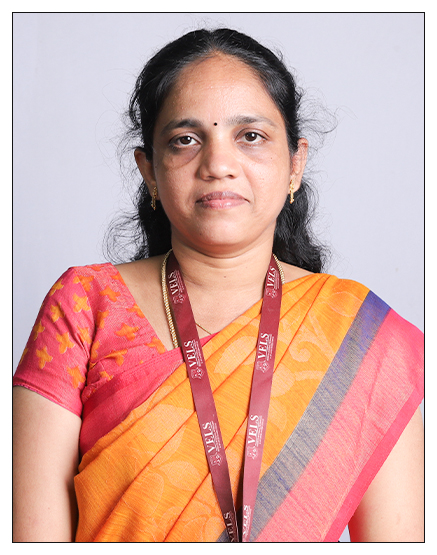 |
| 13 | Dr.Banushri.A | Assistant Professor | M.Tech., Ph.D | Cloud Computing, Blockchain Technology, Computer Networks, Network Security | 13 | 237876 | 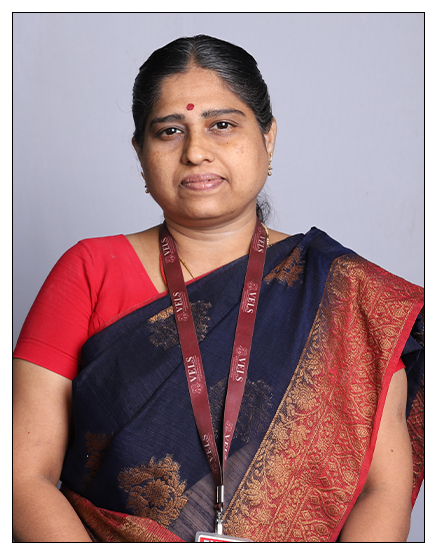 |
| 14 | Dr. S.Thirumal | Assistant Professor | M.E., Ph.D | Computer Networks, Cloud Computing, IoT, Image Processing, AI & Machine Learning, Data Science | 11.5 | 32474 | 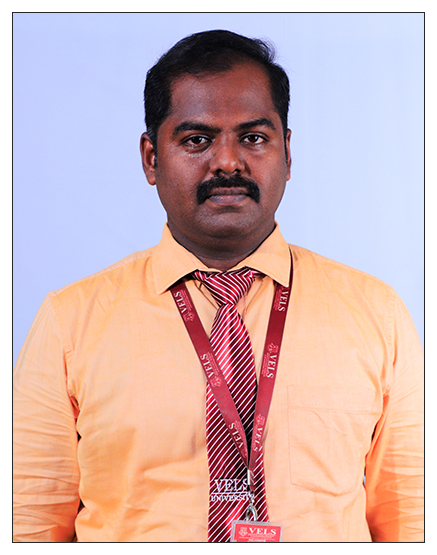 |
| 15 | Dr.P.Thilakavathy | Assistant Professor | M.E., Ph.D | Image processing, machine learning, IoT | 9 | 470493 | 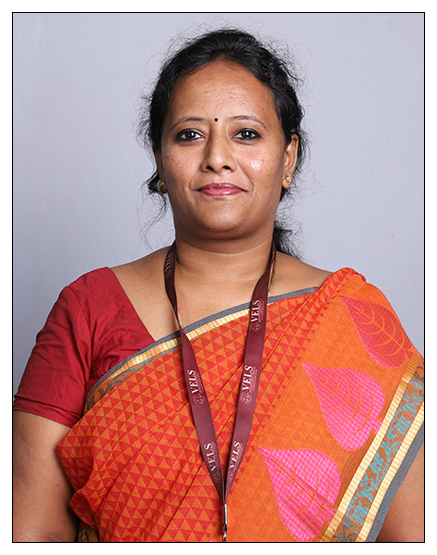 |
| 16 | Dr. G. Revathy | Assistant Professor | M.E., Ph.D. | Cybersecurity, Machine Learning, Deep learning, NLP | 5 | 475353 | 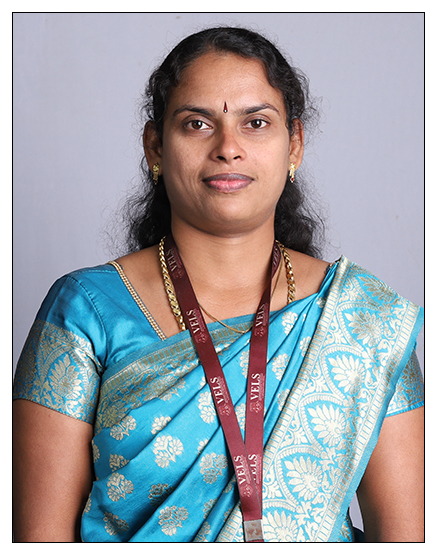 |
| 17 | Dr. A.Saritha | Assistant Professor | M.E., Ph.D. | Computer networks,cloud computing,Mobile Ad hoc networks,Machine learning | 13 | 233992 | 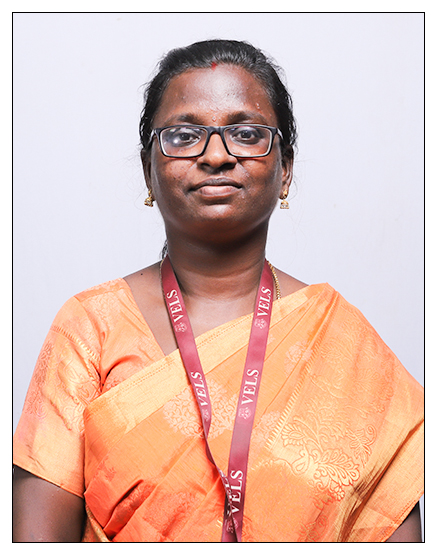 |
| 18 | Ms.Parvathavarthini.K | Assistant Professor | M.E., (Ph.D) | Image Processing, Computer Networks, Deep Learning | 9.6 | 232483 | 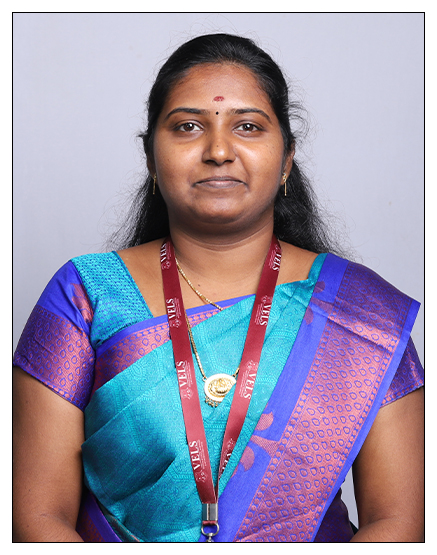 |
| 19 | Mr.C.Darwin | Assistant Professor | M.Tech | Grid Computing, Computer Networks, WSN, Cloud Computing | 9 | 495008 |  |
| 20 | Mr M.Franklin Singh | Assistant Professor | M.E. | Computer Networks, Embedded Systems, Sensors | 5 | 495002 |  |
| 21 | Mr Jegan Thomas | Assistant Professor | M.E. | Data Communication, Web Analytics, Digital Marketing | 5 | 495006 |  |
| 22 | Mr.K.Kalaiyamuthan | Assistant Professor | M.E. | Web Development | 11.7 | 487389 |  |
| 23 | Mrs.R.Deepa | Assistant Professor | M.E., (Ph.D) | Deep Learning /Machine Learning, Data Analytics | 9 | 253738 | 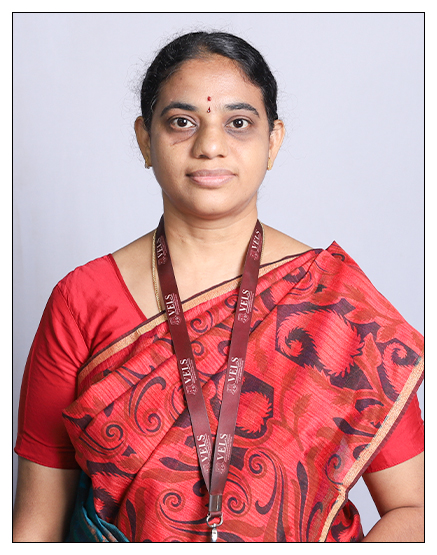 |
| 24 | Mrs.S.Vijitha | Assistant Professor | M.E., (Ph.D) | Block Chain Technology, Networks,Big Data security, Machine learning | 6 | 253591 | 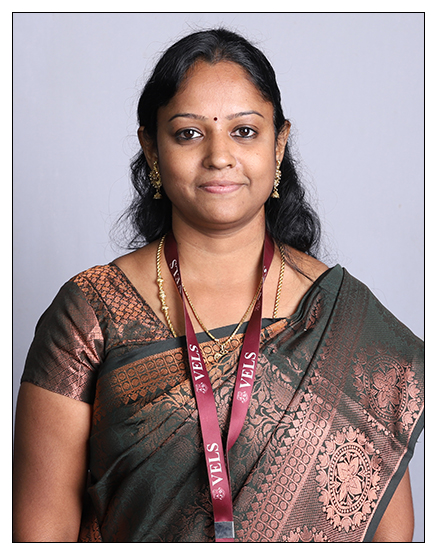 |
| 25 | Mrs.S.Sethu | Assistant Professor | M.E., (Ph.D) | Computer Networks,Network Security, Deep learning | 5 | 469629 | 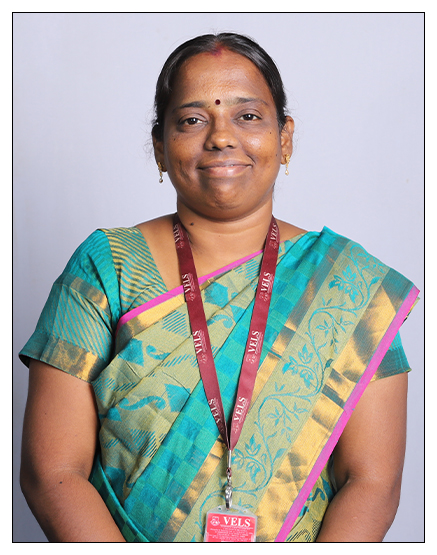 |
| 26 | Ms.Pavithra Jagadesan | Assistant Professor | M.E., (Ph.D) | Cyber security, machine learning | 3 | 475337 | 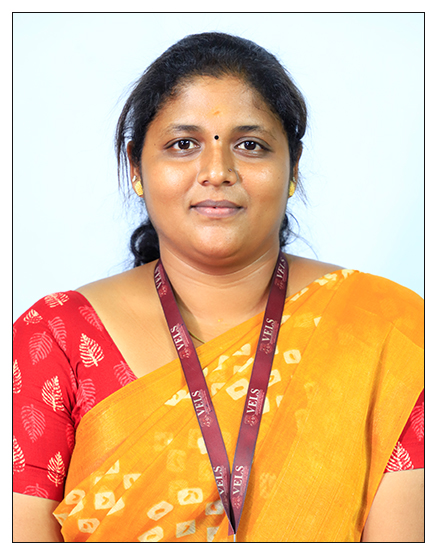 |
| 27 | Mrs. P. Mohana priya | Assistant Professor | M.E., (Ph.D) | Deep Learning, Machine learning,Image processing | 3 | 484305 | 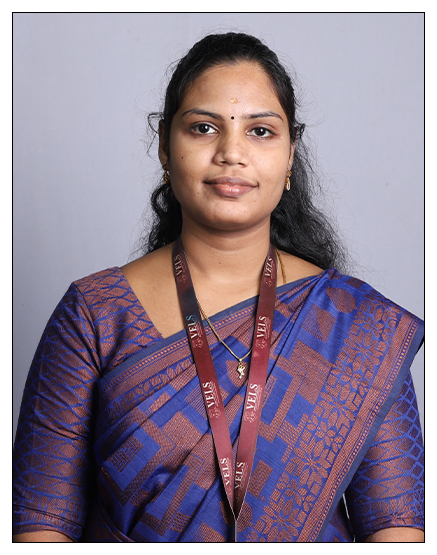 |
| 28 | Mrs.M.Subbulakshmi | Assistant Professor | M.Tech. | Image Processing, Computer Networks. | 2 | 487404 |  |
| 29 | Mrs.M.Bhanumathi | Assistant Professor | M.E., (Ph.D) | Deep Learning, Machine Learning | 17 | 315834 | 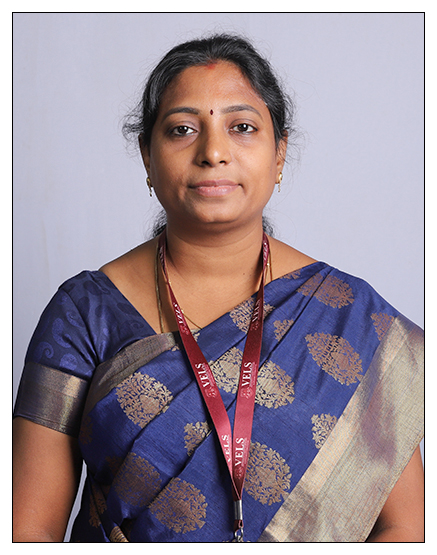 |
| 30 | Mr.N.Udayakumar | Assistant Professor | M.E., (Ph.D) | Computer Networks, Network Security, Cyber Security, Malware Anaysis | 8.6 | 468408 | 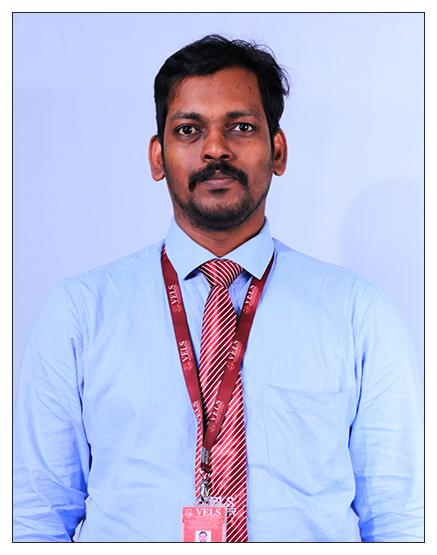 |
| 31 | Mrs.P.V.Hemavathy | Assistant Professor | M.E., (Ph.D) | Deep Learning, Medical Image Processing | 8.5 | 464234 | 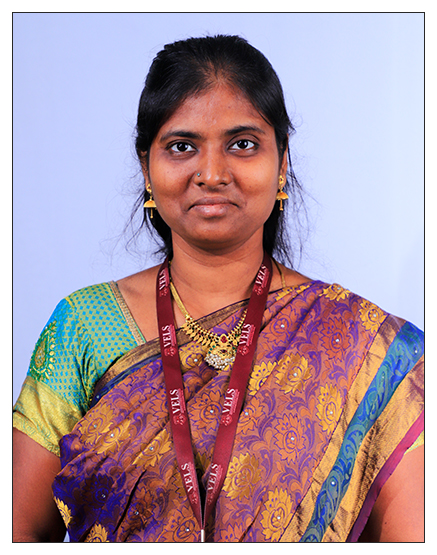 |
| 32 | Mrs.S.M.Sowmiya | Assistant Professor | M.E., (Ph.D) | Artificial Intelligence, Cloud Computing | 7.5 | 469822 | 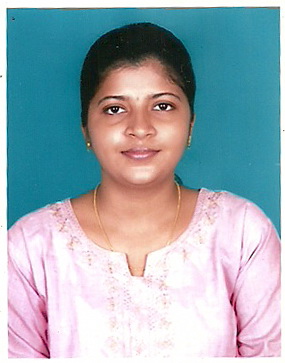 |
| 33 | Mrs.S.J.Kavitha | Assistant Professor | M.E., (Ph.D) | Cloud Computing, IoT, Deep Learning | 3.7 | 469822 | 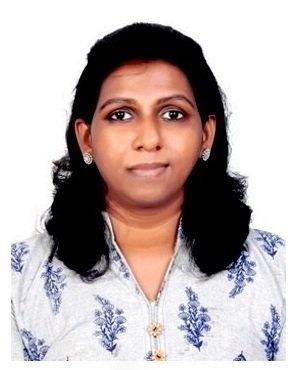 |
| 34 | Dr.S.Varshavardhini | Assistant Professor | M.E., Ph.D | Big Data, Data Mining , Machine Learning | 0.6 | 467731 | 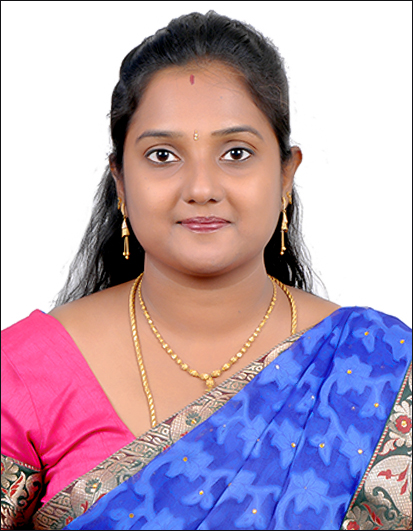 |
| 35 | Mrs.S.Saranya | Assistant Professor | M.E | Computer networks | 0.7 | 467688 | 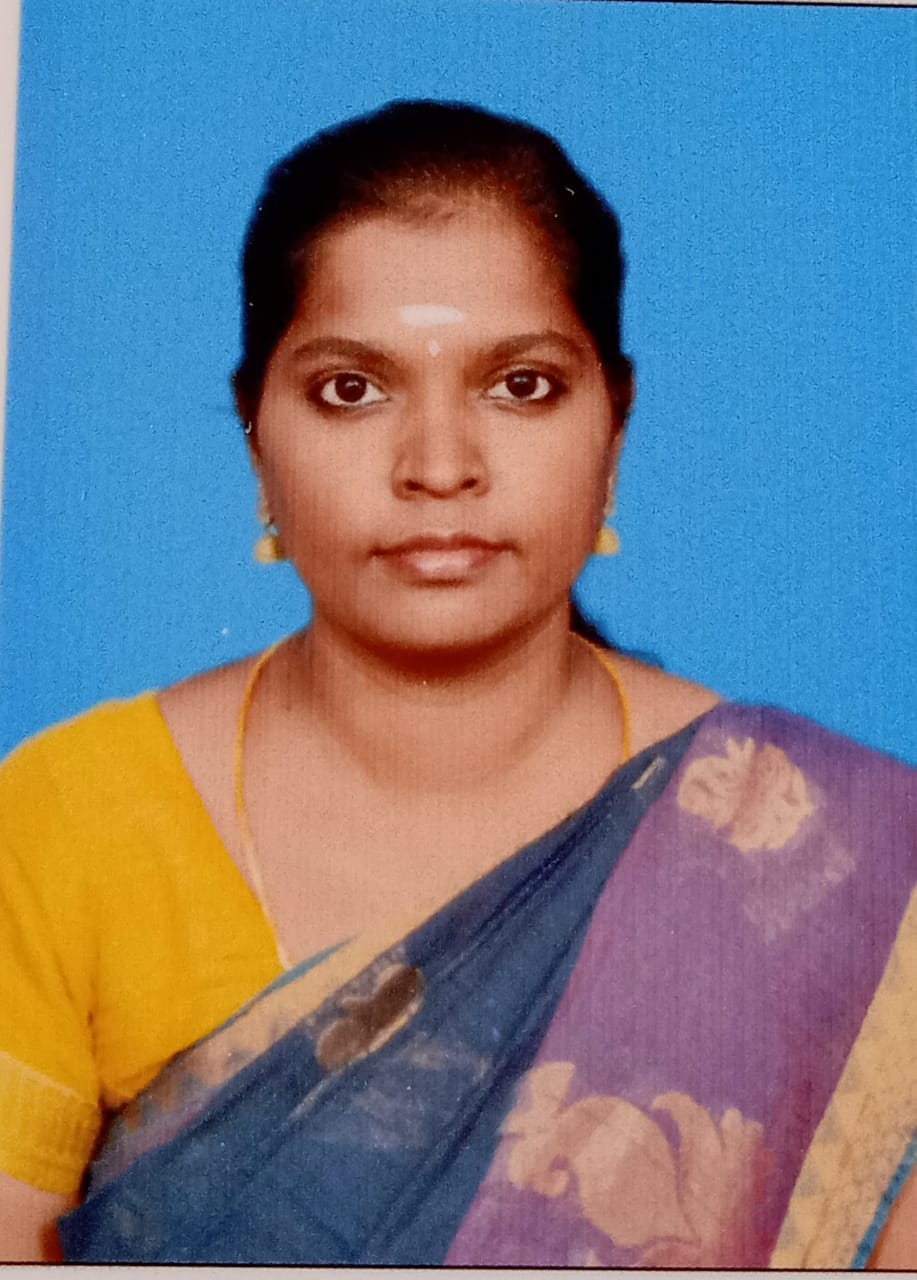 |
| 36 | Mrs.S.Divya Bairavi | Assistant Professor | M.E | Artificial intelligence and machine learning | 7 | 468931 | 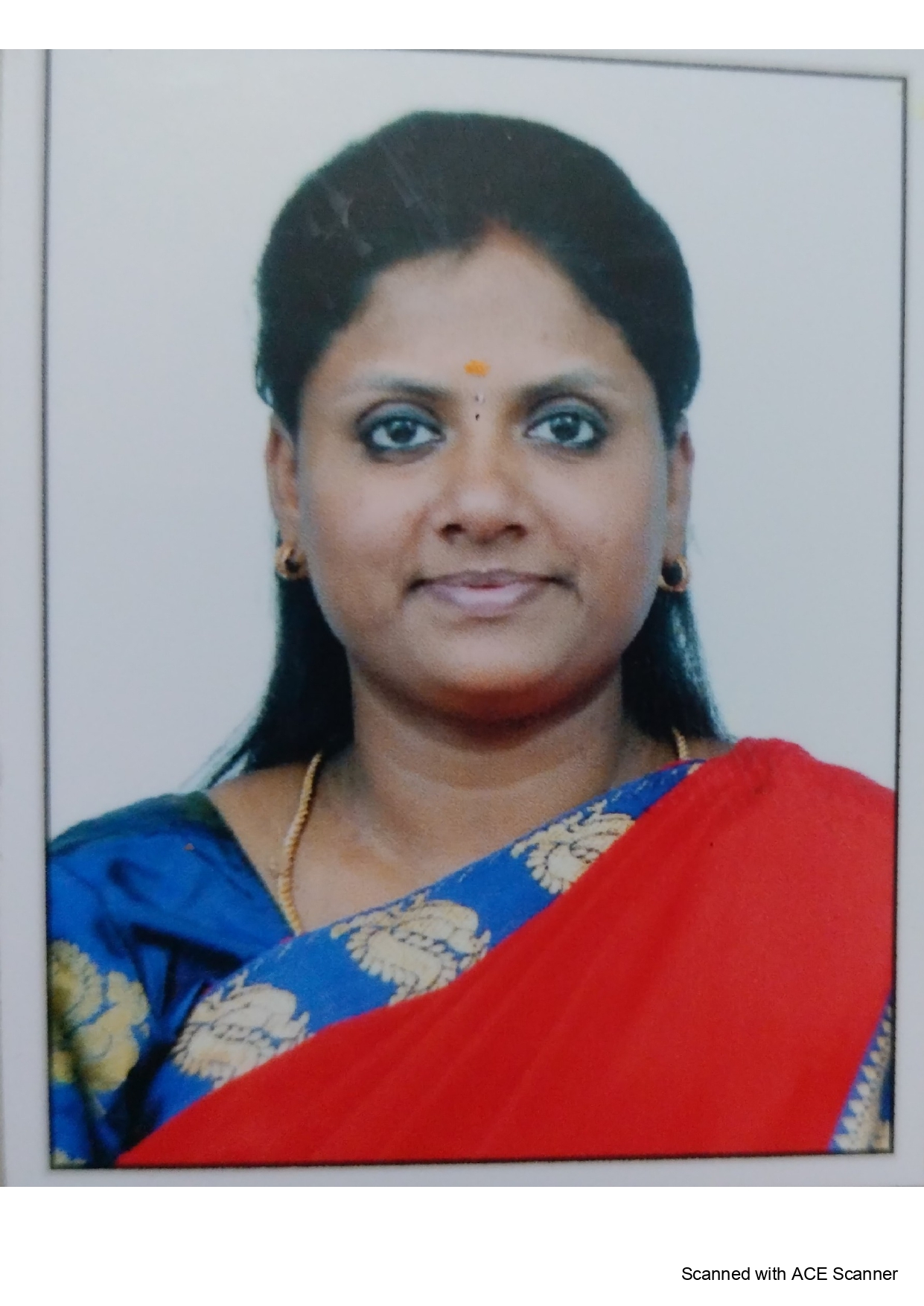 |
| 37 | Mrs.R.Kalpana | Assistant Professor | M.E., (Ph.D) | Blockchain technology , Cryptography, Networks | 16 | 467969 | 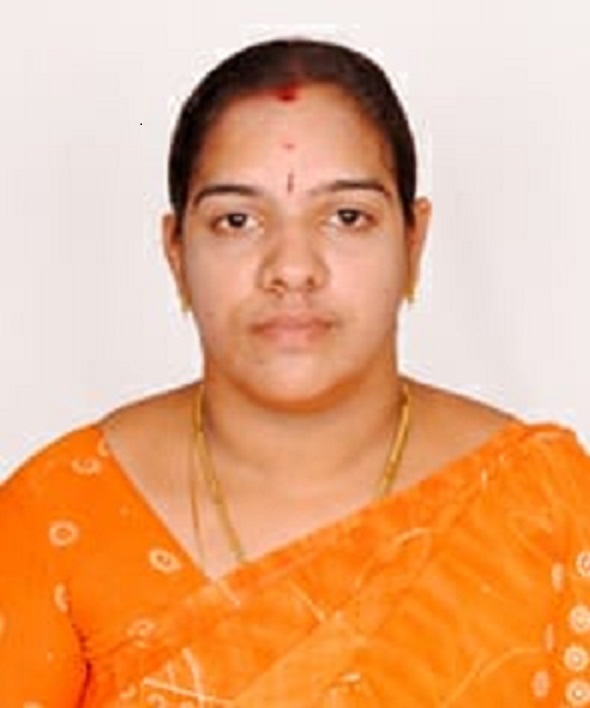 |
| 38 | Mrs.N.Kavitha | Assistant Professor | M.E., (Ph.D) | Deep Learning, Medical Image Processing | 1.8 | 279169 | 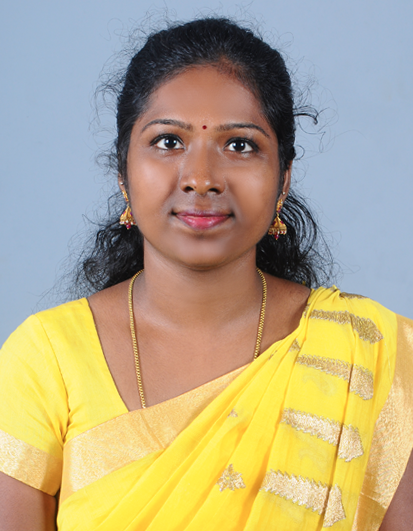 |
| 39 | Mrs V.Bharathi | Assistant Professor | M.E | Image processing, Network security, artificial intelligence and machine learning | 10.5 | 468960 | 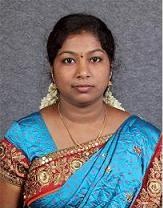 |
| 40 | Dr.KennethSundaraj (Adjunt) | Professor | M.E., Ph.D. | Image Processing, Networks. | - | - | |
| 41 | Mr.SanjeevArumugam (Adjunt) | Assistant Professor | M.E. | Internet of Things | - | - | |
| 42 | Dr.RM.Manikandan (Adjunt) | Associate Professor | M.E., Ph.D. | Computer Networks | - | - | |
| 43 | Mr.Aswinkumar KC (Adjunt) | Assistant Professor | M.Tech. | Internet of Things | - | - | |
| 44 | Mr.Surya S K (Adjunt) | Assistant Professor | M.E. | Internet of Things | - | - |
 CHAT WITH A STUDENT
CHAT WITH A STUDENT